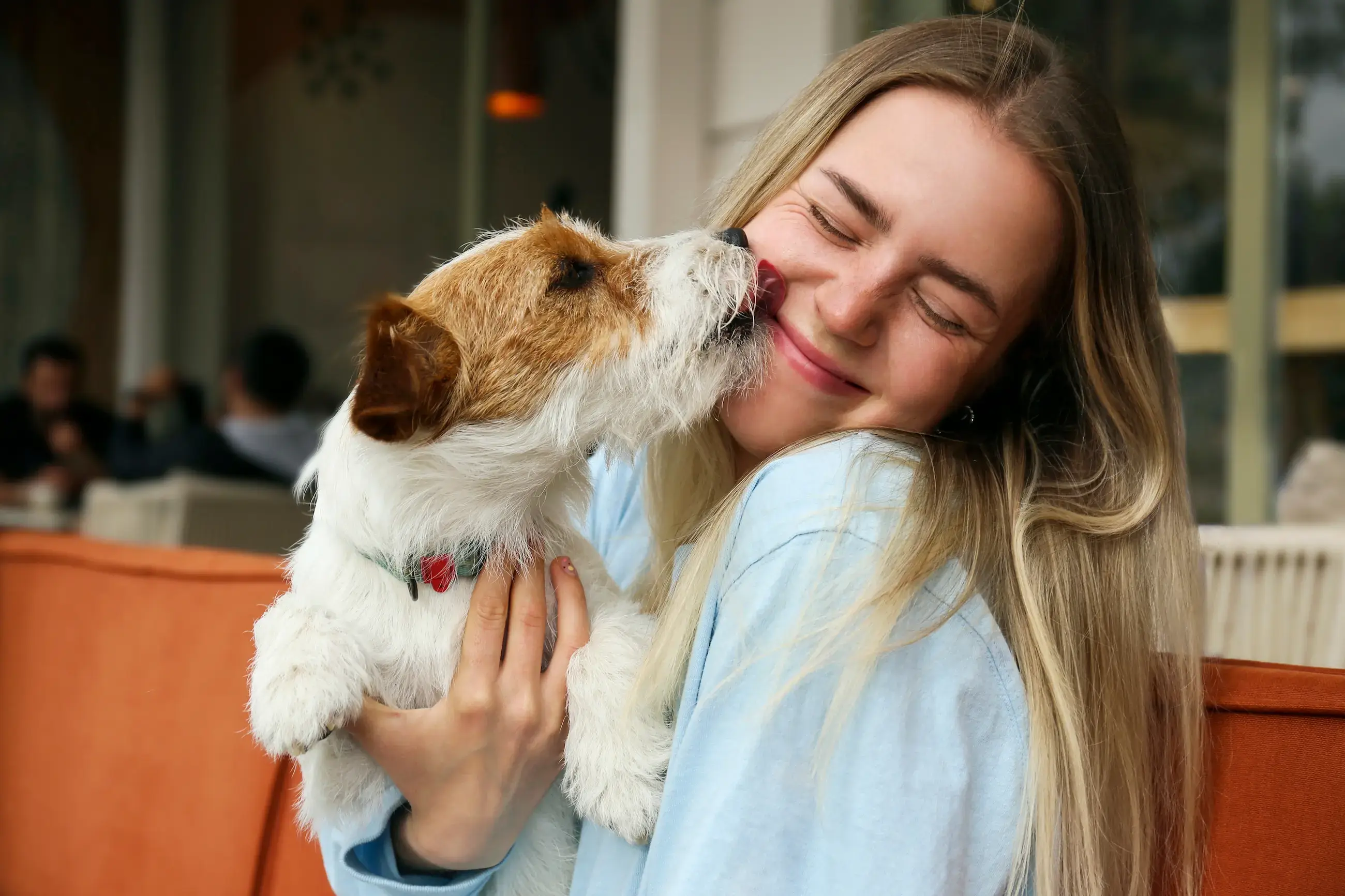Help Your Dog Adjust to a New Home After Adoption
May 01, 2020
Written By: VetriScience
Pet adoptions continue to surge around the U.S. as the pandemic has prompted Americans to shelter in place amidst social distancing guidelines. The rise in pet adoptions and fosters has helped more cats and dogs find their forever homes, even leaving many animal shelters empty for the first time.
If you're planning to adopt a dog, it's important to prepare your home and family for the arrival of your fur-ever friend.
1. Create a Safe Environment
There are many ways to puppy-proof your home to ensure your new dog's safety and comfort. Some of the quickest changes to make include the following:
- Install child safety locks on lower cabinets where cleaning chemicals are kept, or move the chemicals to higher cabinets.
- Tuck away stray cords to prevent them from becoming a play-thing.
- Keep garbage cans in cabinets or use garbage cans with lids.
- Put away medications to ensure they're not accessible.
- Maintain clean floors. Puppies will chew anything they can get their paws on!
- Keep plants, chocolate and other potentially harmful foods out of reach.
2. Gather the Necessities
Your dog has a lot of needs, including food, bedding, toys, and a collar, harness, and leash. Collecting supplies before your pet's arrival will help them adjust to their new environment. Of course, you'll need a crate if you're planning to crate train your new pup. Many pet parents will buy the food their dog eats at the shelter to make the transition just a little bit easier for them. Composure calming supplements and dog probiotics can help your pup adapt to their new home by supporting calm behavior in times of stress and a happier, healthier tummy.
3. Prepare Children in the House
Your children need time to adjust to their furry new family member, too. If it's your child's first pet, they may not know the best ways to behave around a new dog. Children can practice by gently petting and using soft voices with stuffed animals in anticipation of the dog's arrival. You should also explain to your children why it's important to remain calm around the new dog, especially during this adjustment period.
4. Have a Care Plan
Caring for a pet is more than just sloppy kisses and snuggles. To ensure that everyone knows their role, pet parents can make a care schedule that includes everyone in the household. If everyone knows when they'll be expected to feed, play with or walk the new dog, it can help prevent arguments around pet care once they arrive.
5. Choose Where the Dog Will Spend Time
Many pet owners make rules about where their dog will spend time. This should be discussed before your dog even sets foot in the house. You may need to use gates if you want your pet to avoid certain rooms, while a crate can offer your dog a safe space to retreat when they need time alone. If you're working from home due to Covid-19, it may be a good idea to create a pet-free workspace to limit distractions so you can focus on work. But, don't forget to take snuggle breaks!
6. Establish Routines
You can help your new pet feel comfortable in their new home by establishing daily routines. It's helpful to set a routine by feeding and walking your dog at the same time every day. Once your pup knows what to expect, he or she can feel more relaxed at home. Adding walks to your work calendar can help you structure your day if you're working from home. According to the Rule of 3s, it can take a little while for your new dog to understand these routines:
- It will take about 3 days just to settle in. Keep the excitement and activity low!
- It will take about 3 weeks for them to start to learn routines and get to know their new family.
- It will take about 3 months for them to really understand routines and expectations.
Patience is key!
7. Meet Your Vet
It's typically recommended that you bring your dog to the vet within a few weeks of finalizing the adoption. Unfortunately, an office visit may not be in the cards due to social distancing guidelines. It's still important to select your dog's veterinarian and provide them with up-to-date medical records prior to their arrival. This will ensure that you have a team ready should a medical issue arise. Who knows? Your veterinarian may even be willing to schedule a telehealth meet-and-greet!
Written with Jackie Shelton, a content writer and outreach specialist for Two Rabbits Media
Topics: coronavirus, Pet care, covid-19, General Animal Health




%20(1)-1.webp)
